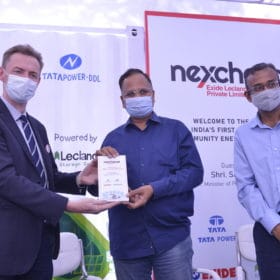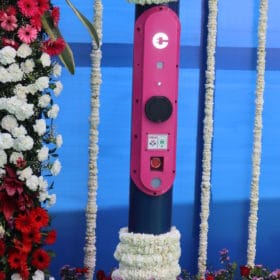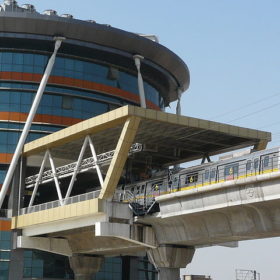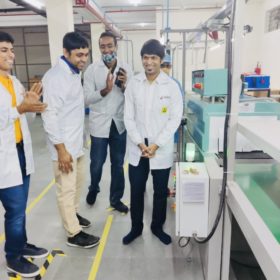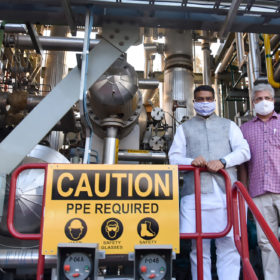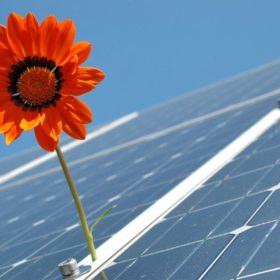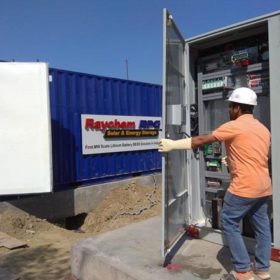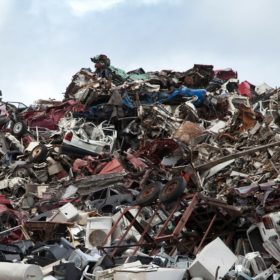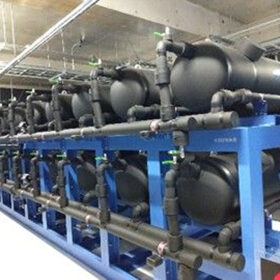India gets first community energy storage connected to grid
Tata Power Delhi Distribution Limited has installed a 150 kW/528 kWh battery energy storage system at Ranibagh Substation in New Delhi. The system will support the utility in managing the peak load, voltage regulation, power factor improvement, frequency regulation, and deviation settlement mechanism at the substation level. Besides, it will provide a power backup of 150 kW for 4 hours duration to preferential consumers in case of a grid outage.
EV maker Euler Motors and energy service firm Smart Joules raise funding from ADB Ventures
Asian Development Bank’s new venture arm ADB Ventures, which invests in technology startups disrupting traditional sectors in the Asia Pacific, has made its first investments into the Indian startups Euler Motors and Smart Joules.
HPCL fuel stations get street lamp integrated EV charger
Magenta Power has installed street lamp integrated EV chargers at HPCL fuel stations in Delhi and Mumbai. The company aims to deploy 1000 units of these charging solutions across the nation this year.
Delhi Metro tenders 2 MW rooftop solar
Bidders have until February 23 to lodge interest for the solar capacity, which is to be developed in RESCO model and has levellized ceiling tariff fixed at INR 4/kWh.
Inverted Energy opens 100 MWh lithium battery plant
The lithium battery assembly facility at Okhla, New Delhi, would initially produce batteries for energy storage in residential, commercial and industrial sectors, and for electric mobility applications. The plan is to eventually cater to critical applications like telecom and healthcare as well.
IndianOil turns to gas, not green hydrogen, to reduce Delhi bus emissions
The public sector energy company has opened a compact reformer plant at Delhi Transport Corporation’s Rajghat bus depot. The facility will produce hydrogen-enriched compressed natural gas as a bus fuel. A trial period will see 50 gas-powered buses run on the blended fuel with fuel economy and emissions monitored.
Study explores feasibility of North India’s renewables transition
The region could, by 2050, cut greenhouse gas emissions from power, heat, transport and desalination which are expected to add up to more than 825 metric tons of carbon dioxide equivalent this year. Such a transition could be perfectly possible, technically and financially.
BHEL wins TERI order for battery energy storage systems
The state-owned engineering firm will supply and set up a cumulative 410 kWh of battery energy storage systems in Delhi under UI-ASSIST (US-India Collaborative for Smart Distribution System with Storage) initiative of TERI.
IIT researchers consider fate of end-of-life solar modules
Scientists at the Indian Institute of Technology in New Delhi have taken a close look at the potential impact of growing volumes of PV waste and conducted surveys which suggest a lot more work is needed from manufacturers and policymakers to develop management systems for end-of-life PV products.
Delhi lockdown has seen solar irradiation rise
Scientists measuring air pollutants and PV performance in the city have found the lockdown conditions imposed since late March have brought about a significant reduction in air pollution which has led to an 8% increase in solar irradiation reaching rooftop arrays.
